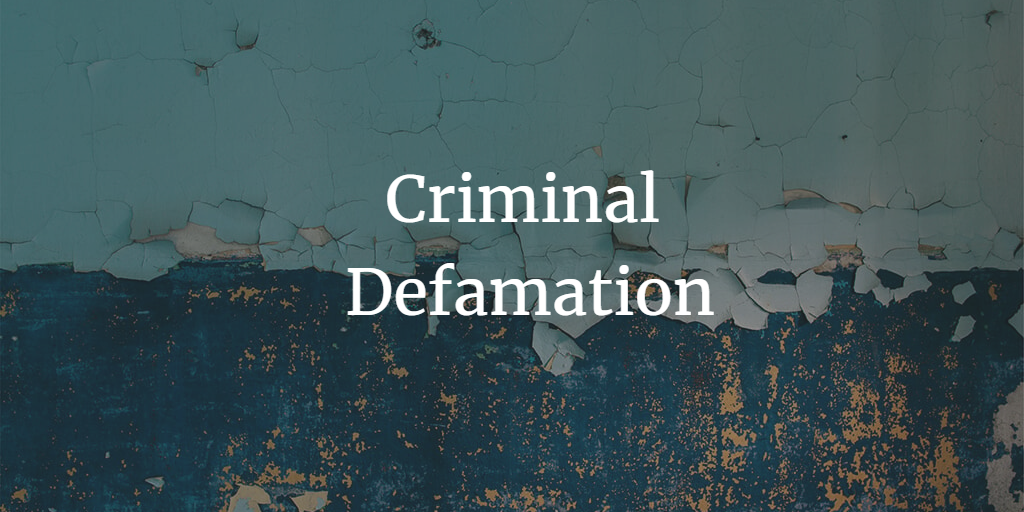Criminal Defamation: The Right to Speech v. The Right to Dignity

Table of Contents
Introduction
Understanding Defamation
Right to Speech vs. Right to Dignity
Notable Cases
The Need for Balance
Conclusion
Introduction
Defamation has long been a contentious issue in India, with the legal framework attempting to balance the right to free speech and expression against the right to protect one's reputation and dignity. This blog post will delve into the intricacies of criminal defamation in India, examining the conflict between these two fundamental rights and the necessity to strike a balance.
Understanding Defamation
Defamation is a false statement that harms the reputation of an individual, business, or group. In India, defamation can be classified into two categories: civil defamation and criminal defamation. Civil defamation pertains to the tort of defamation, where the aggrieved party seeks compensation for the damage caused to their reputation. On the other hand, criminal defamation is governed by Section 499 of the Indian Penal Code (IPC), where the accused can be punished with imprisonment and/or a fine.
Right to Speech vs. Right to Dignity
Article 19(1)(a) of the Indian Constitution guarantees the right to freedom of speech and expression, while Article 21 protects the right to life and personal liberty, which includes the right to dignity. While these rights are fundamental, they are not absolute and can be subjected to reasonable restrictions.
Criminal defamation serves as a restriction on the right to free speech, aiming to protect the dignity and reputation of an individual. However, critics argue that criminal defamation laws are often misused to silence dissent and suppress legitimate criticism, thus hindering the right to free speech.
Notable Cases
Several cases have shaped the discourse on criminal defamation in India:
R. Rajagopal v. State of Tamil Nadu: In this case, the Supreme Court held that the right to privacy and the right to reputation are integral to the right to life guaranteed under Article 21 of the Constitution.
Subramanian Swamy v. Union of India: The Supreme Court upheld the constitutionality of Section 499 of the IPC, stating that criminal defamation is a reasonable restriction on free speech.
The Need for Balance
Striking a balance between the right to free speech and the right to dignity is crucial. While it is essential to safeguard an individual's reputation and dignity, it is equally important to protect the right to express oneself and criticize without fear of reprisal. To achieve this balance, it is necessary to ensure that criminal defamation laws are not misused and that their application is in line with the principles of natural justice.
Conclusion
Criminal defamation presents a complex challenge in balancing the right to speech and the right to dignity. To ensure that these rights coexist harmoniously, there is a need to re-examine the existing legal framework and make appropriate amendments to prevent the misuse of criminal defamation laws. By striking this delicate balance, India can work towards upholding the fundamental rights enshrined in its Constitution.


